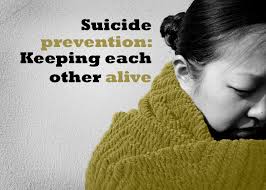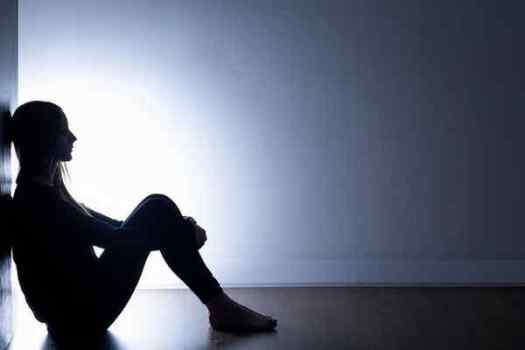Who Commits Suicide?
As odd as it might seem suicide used to be against the law in the United States. Odd because how in the world could you punish a dead person for taking that final, fatal act? Still, some states continue to have laws on the books labeling attempted suicide as a criminal act, although prosecutions have been rare.
The latest statistics show more than 47,000 people killed themselves in the United States in 2017. Historically that number climbs higher every year. Who are these people and what is driving them to snuff out their lives?
There are no rock-solid answers. Depression and hopelessness seem to be the number one reasons cited. Depression over loss of a job or a personal relationship, financial stress or poor health are often mentioned. Every casualty comes with its own unique story but there are concerning trends everyone should be aware of.
According to the Centers for Disease Control suicide occurs in all demographic and ethnic groups but the rate of suicide is highest among middle aged white men. They killed themselves 3.5 times more often than women in 2017 and accounted for nearly 70% of all suicides.
Those statistics made me wonder if the modern-day habit of criticizing “white man’s privilege” had anything to do with these deaths. Harassment and bias against “old white guys” seem to be much more easily tolerated, even encouraged these days.
The occupations of men with the highest rates of suicide include construction jobs like carpenters or electricians. Mechanics, cable installers, commercial divers, illustrators, tattooists and pro sports athletes were also listed as among the top jobs of those who killed themselves.

The Signs Are There If We Just Pay Attention
The occupations of women who commit suicide most often include jobs in the arts, design, media or sports world. Also most frequently affected, women who work in protective service jobs such as a private investigator, a police officer or agent of the TSA. Health care jobs like dental assistants, massage therapists and pharmacy aides were also often represented.
Parents should take note of the CDC’s Youth Risk Behaviors Survey. 7.4% of kids in grades 9-12 reported that they had made at least one attempt at suicide in the previous 12 months. Females attempted suicide about twice as often as male students. Black students were at a higher risk than whites.
The most often method of committing suicide was by firearm, more than half the time the dead used a gun to end their life. Suffocation was the next most frequently used method, followed by poisoning. Interestingly, more than 54% of those who died by suicide did not have a diagnosed mental health condition. One day their loved ones simply found they had killed themselves.

Depression, Lonliness and Hopelessness Can Trigger Suicidial Thoughts
The CDC website has a map of the U.S. showing the suicide rate in each state. As it stands now the top five suicide states are: Montana, Alaska, Wyoming, New Mexico and Idaho.
It is a myth that the dark and dreary days of winter or holiday time, like Thanksgiving and Christmas, are prime suicide times. In reality, it is the springtime months of April, May and early June that routinely register an uptick of despondent people succumbing to the dark side.
And sadly, there appears to be a copy-cat component – experts call it the “cluster” or “contagion effect” – most often following a high-profile suicide like celebrity chef Anthony Bourdain or fashion icon Kate Spade.
“When there’s a prominent suicide, we can see more suicides,” says Shari Sinwelski, of the National Suicide Prevention Lifeline. “Sometimes people may already be feeling very vulnerable, and they see someone who they can relate to and their vulnerabilities.”

Comedian and Actor Robin Williams – 2008 – Wiki commons
One study conducted after comedian Robin Williams tragically took his life in 2014 showed that in the months following his death there was an increase in suicides of almost 10%. Another copycat effect was seen after the suicide of movie star Marilyn Monroe. During the month of her death in August 1962 there was a 12% increase in suicides. A National Institute of Health report explained the mindset of a susceptible suicidal person this way: “If a Marilyn Monroe with all her fame and fortune cannot endure life, ‘Why should I?’”
Studies have also shown that the way the media reports celebrity suicides can also increase the risk of additional deaths. The more sensational and romanticized the suicide coverage the more a vulnerable person could be triggered into the same fatal action. After questions about musician Kurt Cobain’s suicide were raised (was it really murder?) his wife tried to kill herself as well.
This is just a fraction of the information one should consume if they are worried about a loved one who may be contemplating suicide. The best advise is to be proactive and to engage the person in conversation about the way they are feeling, try to convince them to see a licensed therapist and above all don’t think by ignoring the fear that it will simply diminish.
That’s what many loved ones of suicide victims thought. And then it was too late.

###
Reader Jeff Collins writes:
I’ve read that prolonged loneliness can produce chemical changes in the brain that create a form of psychosis that seriously impairs judgement. We all need to take the time to ASK those we love real questions: “How are you really doing? How is your health? How’s your love life? Is your family OK? What’s going on with your kids?” Sometimes you have to dig a little… and that’s O.K.
Reader Philip Hinman writes:
Probably lack of money, love and future.There seems to be alot of that going on these days.
Reader Jonathan Swartz writes:
I would say lack of love, mental illness, and addiction. When I was living in Tappan, NY, I was always happy because I had allies in the community who made sure I was okay and were always there for me (perhaps you might even know some of them).
Reader Kim Winton writes:
Mental illness, addiction. It’s a common theme amongst suicides. Many are related to alcoholism as well.
Reader Mary Bush writes:
Head injury is something no one talks about, its not a mental illness. Bullying is another fact, most just want their pain to stop.
Reader Joanna Barouch writes:
Two people close to me, my father in law and my high school boyfriend, made the decision to end their lives. FIL’s stated reason, in his note, was that he didn’t want to be any more than 80 years old. He killed himself about 10 days before that birthday. He had been suffering from depression for years and as we found out later, was not taking his prescribed medicine. His last attempt was not his first.
My high school bf at age 52 was mentally ill and taking meds that were beginning to be ineffective. When the company he worked for in the financial world went under it was the last straw for him.
I am convinced that if someone wants to do this, and really mean they want to do it, there’s nothing anyone else can do to stop it. In both of these cases there was loving family and loving partners, they weren’t isolated from society….they just wanted to stop living. Of course they were both mentally ill. Someone in their right mind doesn’t do this, at least not usually. Either way, the aftermath is terrible. Both of these people didn’t think that they were good for their families, but of course that was the illness speaking. The most important thing for survivors to remember is that it’s not their fault their loved one gave up on life. It’s both easy and difficult to say. And even harder for some to believe. Btw, asking questions like “how are you really doing” often get untruthful answers. On the day he died, FIL told a cousin that he was just fine. An hour later, he was dead.
Reader Richard Hydell writes:
I have a friend very talented had six children and another severely disabled. I saved his life once . One day walked out to his garage and hung himself .
I still can’t get my head around it .
By the way I feel we have the right to end our lives. I think people who have no desire to end their life call suicide a mental illness or something else.
The people that suffer are the ones left behind trying to figure it out .
Reader Savannah Silver writes:
You would be shocked who commits Suicide … they walk among us the “normal ” people that they see, when you live with someone who has been suicidal … they do not see what we see,
Reader Rory Bennett writes:
Many years ago, when Elliot Mintz hosted a radio show in LA, he talked about the phone calls he often received from deeply despondent people who’d given up and wanted to end their lives right then. He listened to everything they had to say but asked them to please just stick it out one more day, Just one day. And time after time, they’d call back days or weeks later to thank him — because on that next day, things changed for the better. Help arrived, the depression lifted, etc. I always thought that was such brilliant advice for people in situations that seem hopeless. Sometimes just one day can make all the difference.
Reader Marilyn Salzman writes:
Please go to this link if you are considering suicide:
http://www.nami.org
Reader Carl Mey writes:
My older brother decided he wanted to go back to his vision of the afterlife and he did. At age 16 he was legally dead due to a head injury he got in a bicycle accident. He was brought back by an amazing head trauma team. Some twenty years later he took his life after being in and out of mental hospitals. He wasn’t taking his meds.
It was very sad to see him go but I was glad that his suffering was over. He shouldn’t have been brought back after being brain dead for so long.
Reader Ann Dorian writes:
This Country has done a very poor job in addressing mental illness, brain research, funding for Counselors, especially in the middle and high schools. To find a decent therapist, in many States, is a daunting task. The lack of education and understanding about Mental Illness is appalling. We could start here.
Reader John Bisney writes:
It can be the unfortunate result of a deep depression which smothers all hope for any future.
Reader “Alumno DeVerum” writes:
My half brother recently killed his mother and himself in an extremely violent way.
By the time my parents divorced and my father remarried I was a father myself so by the time Cody was born there was a gap of almost 30 years between us. I won’t deny some in my family rejected him and his mother but my wife and I tried to include him whenever my father thought to visit which was rarely. Most of the time he had nothing to do with the kids from his first marriage or even his own mother.
My father was a successful civil engineer and was respected by his peers but he was abusive to us in private. I vividly remember once when I was in elementary school having wet the bed. He punished me by making me run around the block in my underwear. You cannot imagine the humiliation and rage it instilled in me. Fortunately we moved to another city soon after so I didn’t have to suffer the shame of what happened from my school mates for long but the scars still exist in my mind.
Somehow I was able to come to terms with what happened to me and I have been happily married for 38 years and have 2 beautiful daughters and a granddaughter. I have also enjoyed a career as a paramedic and have been able to use my experience in dealing with troubled patients. Unfortunately I was less successful in dealing with my brother Cody.
He was basically living an isolated existence alone with his mother for the last decade after my father died. I have no evidence to support it but I believe he was most probably abused by my father as i was and I was told he had been bullied at school when he was younger. The cumulative effect was to cause him to withdraw into his own barricaded world. Our interactions were reduced to Facebook messages until even those ceased altogether. The last communication I had with him was few years ago and was essentially nothing more than an angry rant directed at no particular person but the world at large. I tried to contact him a few times since then to no avail.
So while I was shocked at the level of the violence of his actions I was not surprised he took his own life. I can only surmise he was so tormented that he felt the only recourse he had was to obliterate any trace of his existence and that he didn’t want to leave his mother and her dog alone in such a cold and viscous universe and that’s why he not only killed them but placed them side by side as a twisted act of compassion. I don’t know that was the case but I want to believe it was and so I don’t feel angry at him for what he did but instead a deep sense of regret and sadness
https://www.arkansasonline.com/…/mother-son-deaths…/…